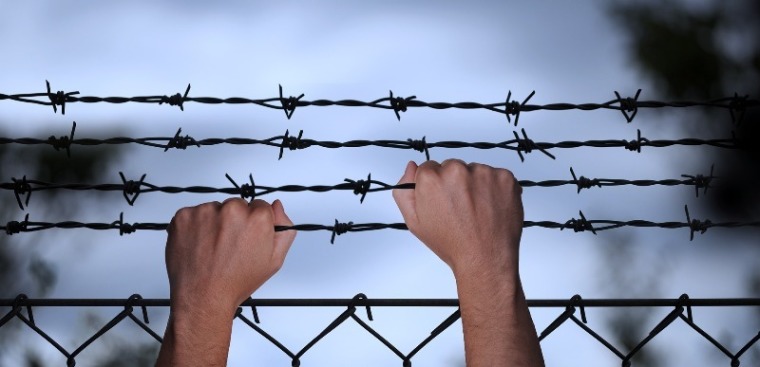
Anger is a human emotion as basic as happiness and sadness, anxiety and excitement.
It is a feeling which, like all feelings, is merely an exterior to a whole inner story.
It is powerful, deep and arguably necessary. Unfortunately, it is also an emotion that is all too quickly shut down or locked away.
In Christian circles especially, anger is a dangerous word.
One can express a little anger – all things in moderation after all – but there are specific ways as to how (and how often) one can do so. Too much anger, and you’re in danger of causing unwanted ripples, destroying your good name, or even “channelling Satan”.
But anger is not the foul on the playing field.
Anger is the red flag.
Not paying attention to anger is what makes it dangerous.
We smother it with meditation or muffle it with heart-crooning worship music. We teach that anger only afflicts those who have a problem with self-control.
We teach that those who are angry are a problem.
But they are not the problem, and neither is their anger.
Anger is merely the sign that there is a problem.
And if we ignore it or – worse – discredit it, we are committing the far greater crime of purposely closing our eyes to injustice, suffering and more.
Too often, the church and mission field treat anger like a pesky kitchen fire.
Some idiot’s stovetop has gone up in flames? Extinguish it, get rid of the smoke, put up signs to make sure it doesn’t happen again.
But if anger is a desperate signal that something is wrong, then smothering that signal with a Jesus-fire-blanket does nothing to alleviate, acknowledge or address the issue.
So what would Jesus do? Apparently, he’d throw around heavy tables and lash out with a whip.
His anger was chaotic and loud. It was also a shout in the face of blatant corruption.
Jesus let his anger roar, and one only has to look at the global protests taking place around the world to see that the he is not alone in using anger as fuel for taking a stance against wrongdoing.
Anger is a powerful mover and shaker.
Anger can motivate and ignite us. It can bring about action and change, show us where the problems are and inspire us to create better and greater ways of doing things.
Anger is also a preparatory emotion. We need anger in order to survive.
The surge of adrenaline we feel when angry is our sympathetic nervous system gearing up for a fight, flight or freeze response.
Anger floods the body with stress hormones relating to survival.
But without alleviation – aka honestly and openly facing whatever is causing that anger – the stress hormones will just keep pumping.
Thus, if left in a ruminative state of anger, a person’s normal and necessary reaction to something such as injustice, will soon be overwhelmed by the non-stop flood of “fight, flight or freeze” signals being screamed into their brain.
Soon, the necessary problem-analysis – that was inspired by a healthy shot of anger – is swallowed up by anger’s much more dangerous cousin: Rage.
This is why anger is too important to ignore.
Anger is a signal that something is off. Even if we can’t pinpoint right away what the problem is, anger tells us that there is indeed a problem. It is a useful stimulus for honing in on whatever is out of sync and setting about correcting it.
Anger is not something to hide from.
It is something to adhere.
When someone is angry, we need to stop, pay attention and LISTEN.
Too often, churches and missions, governments and boards, throw water on any hint of dissatisfaction, miscommunication, injustice and the dreaded anger that follows these.
They do not pause to ask what is causing this response.
They do not see that there is a person, a community, a whole people group, caught up in a suffering that can only be expressed with anger.
It’s time to make anger a valid voice.
It’s time for churches and governments to be places where anger is taken seriously, listened to, and come alongside with respect and empathy.
Anger can be a terrifying and destructive scene.
But it can also be a cry for help that has been ignored in every other context.
It’s time to listen to that cry, uncover the real story behind it, and take appropriate action. And if we’re unsure of the first step, a good place to start is simply “do justly, love mercy and walk humbly”.
And maybe, by liberating anger, we might just end up liberating ourselves.
“I sat with my anger long enough until she told me her real name was grief.”
(Isaac Rowe)

Emma is an Italian-South African with a New Zealand passport and an international heart. She spent years training student choirs and co-running a puppeteering business, before working for a humanitarian organisation in New Zealand (7 years) and Papua New Guinea (3 years). Currently a nomad living between various countries and towns, Emma's deep joy is in writing, music, cooking up an Italian storm, and taking time to listen to people’s stories.
Read Emma's creative expressions at http://www.girlkaleidoscope.wordpress.com or https://pngponderings.wordpress.com/2016/09/02/finding-the-beauty/
Emma’s previous articles may be viewed at www.pressserviceinternational.org/emma-mcgeorge.html